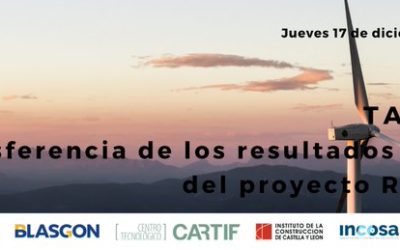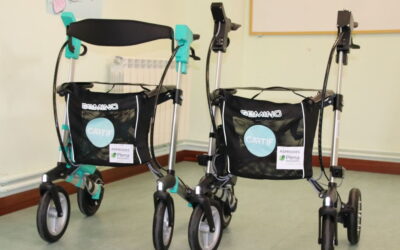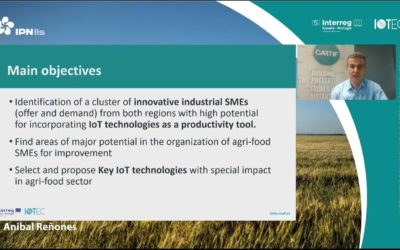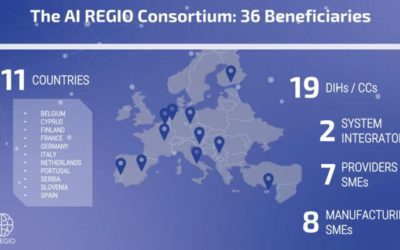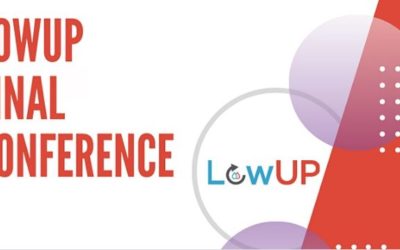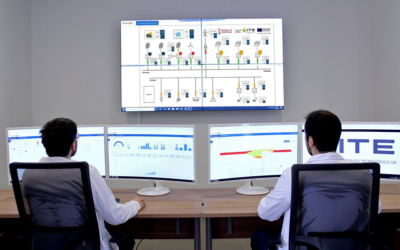Strategic Missions
PROGRAMMES R&D

PROGRAMMES R&D
Strategic Missions
Description
It is a program of aid to cooperative R&D projects (fundamentally, Industrial Research) of great dimension and strategic nature aimed at solving concrete and relevant challenges for Spanish society.
For each of the five proposed “Science and Innovation Missions” there are three or four specific areas for improvement that limit the proposed global challenge.
The projects must have objectives aimed at solving one or more of these areas for improvement, and additional complementary objectives may be proposed, provided they are consistent with the selected mission.
The company must establish three quantitative indicators that reflect the general results of the project objectives. The degree of compliance with these three indicators will modulate the amount of aid finally received.
The following direct costs of execution are admitted: personnel costs, instrumental costs and inventory material, costs of contractual research, technical knowledge and patents acquired at market prices, general expenses and additional operating expenses that derive directly from the project and expenses of the auditor’s report.
| Grandes empresas | PYMEs | |
| CALL | MAX. 60M€ | MIN 10M€ |
| CONSORTIUM COMPOSITION | Leading partners: large Company, at least 1 SME | Leading a médium size Company, only SMEs eligible |
| CONSORTIUM SIZE | 3-8 (2 autonomous) | 3-6 (2 autonomous) |
| BUDGET | MIN 5M€ – MAX 10M€ | MIN 1,5M€ – MAX 3 M€ |
| ALLOCATION | LAST ANNUITY >= 20% | LAST ANNUITY >= 20% |
| SUBCONT ORG.INV | >=20% | >=15% |
| WEIGTH OF THE ACTIVITIES | IND. RESEARCH >= 85% | IND. RESEARCH >= 60% |
| DURATION | 3 or 4 YEARS | 2 or 3 YEARS |
| EJECUCIÓN (fecha fin) | 2020,2021, 2022 and/or 2023 (31 Dec) | 2020,2021 and/or 2022 (31 Dec) |
CARTIF participation
In February 2020 the first call of the call is launched with the intention of replicating it every two years.
The Center, thanks to the extensive experience gained in R&D, has the capacity to tackle the missions, especially the objectives included in the first four missions: clean energy, intelligent mobility, sustainable agri-food and new industry.
Program summary sheet
Summary file in PDF format:
DownloadThematic blocks:
The projects supported with “CDTI Missions” must be multidisciplinary, accommodate different technologies and sectors, and incorporate the latest scientific-technical trends and challenges.
The challenges posed by the Program are embodied, under the cross-cutting umbrella of the fight against climate change and sustainability, in five areas of development or “CDTI Missions” proposed by the CDTI:
Safe, efficient and clean energy for the 21st century
Short description:
Promote the decarbonisation of the Spanish economy to drastically reduce the emission of polluting gases (C02, N02, etc.), as well as the energy dependence on fossil fuels in Spain by investing in R + D in renewable and sustainable energy.
Areas for improvement
- Technological bases (pilot validated in the laboratory) to significantly reduce the cost of generating electrical energy from renewable sources.
- Technological bases (laboratory validated pilot) to significantly reduce the cost of stationary energy storage from renewable sources, regardless of the storage vector used.
- Technologies for the integration of renewables through the development of a more efficient, flexible and intelligent energy network, which allows better management of demand peaks through intelligent systems, as well as better management and integration of prosumers in the networks.
Smart and sustainable mobility
Short description:
Facilitate the evolution and transformation of the transport sector in a broad sense based on sustainability, decarbonisation and the drastic reduction of emissions, with special attention to aspects such as autonomous mobility and electro-mobility and new integrated management systems for inter-modal transport that complement the mentioned technologies, as well as new urban or interurban mobility systems that can coexist with the traditional ones.
- Obtain a functional prototype in relevant environment (TRL 5) of autonomous vehicle (equivalent to class 3 or 4 in autonomous cars), as well as infrastructure and communication management systems for autonomous vehicle parks, regardless of the sector.
- Significant improvement in energy density and cost of energy storage systems in electric vehicles.
- Development of advanced recharging systems and infrastructures for vehicle parks of all kinds.
- Elimination or reduction of emissions from all types of vehicles and promotion of mobility models that contribute to this objective.
Promote a large sustainable and healthy agro-food sector
Short description:
Convert the Spanish agri-food sector into a source of innovation capable of facing the challenges of climate change and actively contributing to a healthy diet with less environmental impact.
- Promotion of sustainable agriculture that improves crop yields, reduces water and nutrient consumption, as well as phitosanitary.
- Development of plant varieties adapted to the challenges of climate change, and resistant to emerging pests.
- Sustainable and lower environmental impact development of functional products and ingredients that contribute to reducing the incidence and morbidity of preventable diseases with a high social impact related to diet.
Boost Spanish industry in the industrial revolution of the 21st century
Short description:
Development of advanced research in areas that enable disruptive news for the industry that have a transversal and high impact on its sustainability and generate greater competitiveness and efficiency.
- Developments for an industrial production oriented to personalization, total quality and high productivity, which adequately integrates robotic systems and human workers.
- Protection of industries that incorporate innovations based on interconnected and susceptible of attacking information systems.
- Developments for a sustainable and efficient industrial production in all the links of the chain (raw materials, intermediate products, final products and waste) that guarantee effective recycling and recovery systems for industrial waste.
Give a sustainable response to diseases and needs derived from aging
Short description:
Develop ambitious R&D initiatives that allow the Spanish health technology industry to contribute to a sustainable response to functional problems, dependency and fragility derived from the aging of Spanish society, while allowing growth, being more competitive and reinforcing the leadership position of Spanish healthcare.
- Develop diagnostic methods aimed at the early identification of diseases derived from degenerative, non-tumor processes, typical of aging, in order to be able to modify their natural history and delay the disability derived from their evolution.
- Advance in the treatment of diseases of high impact on society derived from degenerative, non-tumor processes, typical of aging, including the development of health technologies, new equipment and / or elements to support the patient that allow offering alternatives to those with options limited or non-existent therapeutics, as well as those technologies that allow reducing or delaying the degree of dependency.
- Monitoring, follow-up and management of degenerative, non-tumor processes, typical of aging and the needs of the frail elderly population, relying on ICT (digital health), with intelligent use of data.
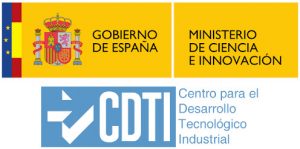
Responsible
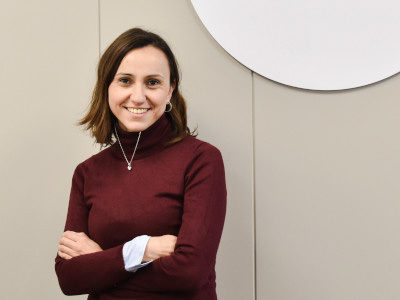
Irene Hompanera Velasco
Programs Department
Related projects
LIFE REFIBRE Project presents its final results in its 5th online workshop
The consortium of LIFE REFIBRE Project, represented by CARTIF, ICCL, Grupo INCOSA, BLASGÓN and SAN GREGORIO, will offer next Thursday, December 17, from 10 a.m. to 2 p.m. a workshop with streaming broadcasting in which it will present the final results of this...
PROCURA
PROCURA aims at the realisation of two innovative social and health care solutions for active ageing and independent living, going beyond the current specifications available on the market and allowing the piloting of innovative technologies in the experimental environment of a living lab.
NUTRIBER
Application of new technologies on the development of a nutritionally improved iberian bacon. Reducing the sodium content in the formulation and limiting nitrites/nitrates.
The IOTEC Project offers an online ‘matchmaking’ oriented to the agro-industrial sector
On October 21, a 'matchmaking' event took place within the framework of the project "IOTEC - Development of technological capacities around the industrial application of the Internet of Things (IoT)", applied in the agro-industrial context and which had the...
CARTIF participates in AI REGIO Project, an alliance for the digitization of SMEs through Artificial Intelligence
CARTIF and 35 other partners from 8 European countries have kick-started the EU-funded AI REGIO project with an online meeting with more than sixty participants in October 9. This initiative, which will have an initial duration of 3 years, has the mission of helping...
The European Project LowUP closes the curtain with its final conference
After 4 years of intense research, development and innovation efforts, the LowUP project holds its final conference. The event will be on Friday, October 30 and will take place online due to the current pandemic situation. This international initiative, with the...
Auto-DAN
The Auto-DAN project aims to enable homes and small businesses across the EU to optimize their energy consumption and provide and assessment of the live energy performance of a building. The solution will focus on the assistive role automation will have in buildings.
LowUP
LowUP will develop and demonstrate three new efficient heating and cooling technologies that will reduce CO2 emission and primary energy consumption. Heating and cooling account for 50% of the EU´s annual energy consumption.
HySGRID+
The objective of the Cervera HySGRID+ network is to strengthen the technological capacity of Spanish Technology Centres with a high level of complementarity and promote their solid cooperation with the ultimate aim of researching and developing new technological solutions that facilitate the creation of local energy positive balance communities (LEPC)
CARTIF is part of HySGrid+, the first network for the deployment of local energy communities
CARTIF, the Technological Institute of Energy (ITE) and the technology centres Ikerlan, Aicia and ITG make up the HySGrid+ network, a Spanish technological alliance that will aim to develop solutions for local energy communities with a positive net balance. The...
